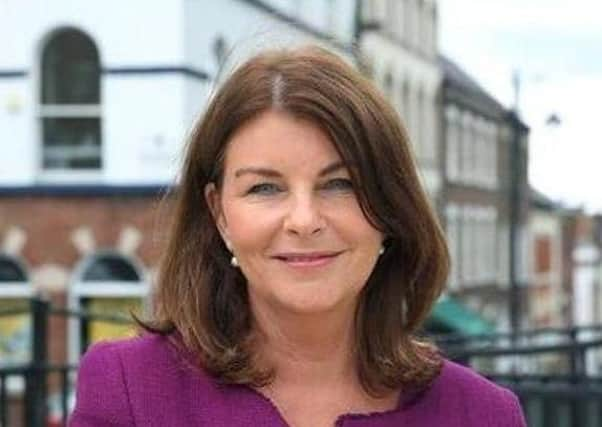Derry MLA Sinéad McLaughlin remembers late brother and mother and indicts practice of 'churching' in abortion bill debate


The SDLP MLA, in a contribution to the debate on the Severe Fetal Impairment Abortion (Amendment) Bill on Monday, said her late mother was 'churched' after the tragedy and didn't know exactly where her son was buried.
Mrs. McLaughlin said she spent Mother's Day thinking about her mother a lot.
Advertisement
Hide AdAdvertisement
Hide Ad"My mum died 12 years ago. Yesterday, I thought about her, motherhood and how the world treats mothers and women, both past and present. In the 1960s, a few years after I was born, my mum gave birth to a full-term stillborn baby boy.
"He died a few minutes before birth. He was not given the dignity of a church burial, and he was buried in an unmarked grave. My mother never really knew exactly where he was buried. I tell this story, and there are many others like it, because it happened in my lifetime," she said.
The Foyle MLA was referring to a religious purification ritual no longer practised in Ireland.
She told MLAs that it was one example of how Derry society in the 1960s tried to control female behaviour.
Advertisement
Hide AdAdvertisement
Hide Ad"Back in the early 1960s, my mum could not even attend my christening as she had to remain at home for four to six weeks after she gave birth. My mum had to be 'churched' after childbirth.
"'Churching' refers to a ritual or blessing as an act of cleansing mothers following recovery from childbirth. Only married women were eligible for that blessing. My mum said that many women felt the stigma of being labelled as 'tainted' or 'dirty' after going through the, often difficult but no-less-life-affirming, joy of childbirth.
"I tell that story of churching because, shockingly, it is one of the least extreme examples of how society tried to control female behaviour by imposing restrictive rules and beliefs on women's reproductive rights. Again, that happened in my lifetime. The swinging sixties they were not. Women being in control of their reproductive rights was forbidden. Family sizes were testament to that."
Sands, the stillbirth and neonatal death charity, supports anyone affected by the death of a baby, working to improve the care bereaved parents receive, and promoting research and working closely with many different organisations to reduce the loss of babies’ lives. Contact: [email protected]
Advertisement
Hide AdAdvertisement
Hide AdCruse Bereavement Care has been helping bereaved people for over 60 years. Due to the current pandemic and ongoing social distancing, all Cruse services will be provided over the telephone, email or internet until further notice. Please contact us to find out more. Tel: 028 7126 2941 Email: [email protected]